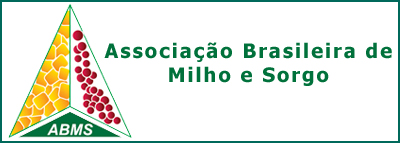CHEMICAL RESPONSE OF MAIZE PLANTS WITH RESISTANCE TO FALL ARMYWORM FEEDING DAMAGE
DOI:
https://doi.org/10.18512/1980-6477/rbms.v13n3p249-260Keywords:
HPLC, deterrent, Zea mays, Spodoptera frugiperdaAbstract
This work aimed at verifying the chemical response to Spodotera frugiperda associated to some selected genotypes resistant to this fall armyworm, subsidizing studies for improving commercial cultivars. Genotypes were grown and divided into two groups: a group was infested with S. frugiperda and another group was not infested (control). Extracts from plants of both groups were prepared and their chromatographic profiles were obtained by high performance liquid chromatography. Chlorogenic acid, described in the literature as a natural metabolite with food deterrent activity, was identified in some extracts by comparison with the authentic standard and, later, by mass spectrometry. The chromatograms obtained were classified using chemometric methods. The majority of the genotypes studied showed reduction in the concentration of chlorogenic acid when they were infested by the insect. In addition, extracts of some infested plants showed good activity against S. frugiperda, indicating the synthesis of one or more bioactive substances. This change in the metabolic profile was evidenced by statistical analysis, where pairs of control infested genotypes were distinct from each other. The results point that interaction between insect and plant impacted on the production of metabolites by the plant.
Downloads
Published
How to Cite
Issue
Section
License
Authors retain copyright and grant the journal right of first publication with the work simultaneously licensed under the Creative Commons Attribution License that allows the sharing of work and recognition of the work of authorship and initial publication in this journal.
Authors are able to take on additional contracts separately for non-exclusive distribution of the version of the paper published in this journal (eg, in an institutional repository or publish as a book), with acknowledgment of its initial publication in this journal.
Authors are permitted and encouraged to post their work online (eg, in institutional repositories or on their website) at any point before or during the editorial process, as this may leadto productive exchanges, as well as increase the impact and citation of published work.



